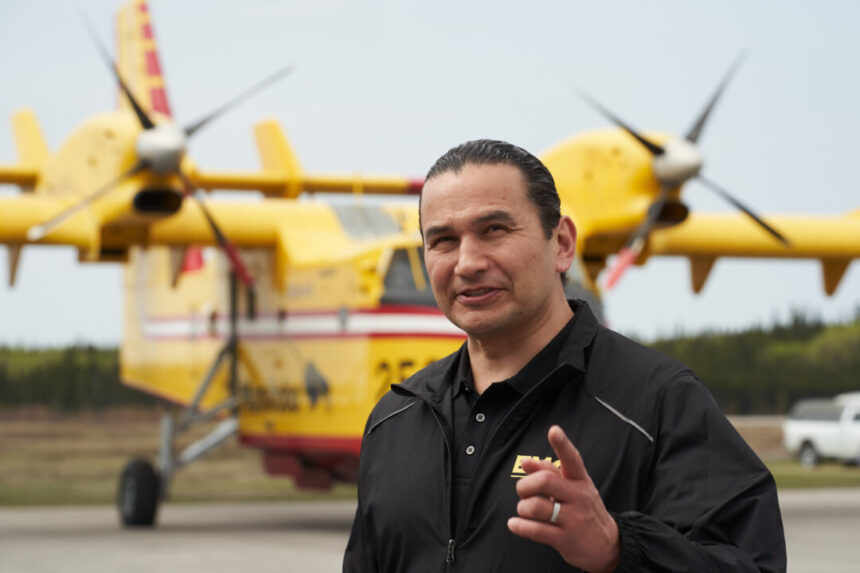Commentary
Winnipeg is facing a severe issue of shoplifting that seems to be spiraling out of control. Thieves are openly stealing high-value items, like frozen meat, from food stores in the inner city.
Shelves are being emptied in what can be better described as robberies rather than simple shoplifting. Victims recount audacious thefts by entitled individuals who react with anger when caught in the act. One store employee, attempting to prevent a theft, was met with the response, “You are on Treaty 1 territory.” The hardest-hit stores are often owned by immigrant families who have worked tirelessly to establish their small businesses. Some have been forced to close due to the rampant criminal activity, and others may soon follow suit.
Law enforcement presence is lacking. Even in rare instances where perpetrators are apprehended and prosecuted, the penalties are minimal.
The issue of brazen theft from Winnipeg liquor stores had escalated to such an extent in the recent past that customers at urban liquor stores in Manitoba are now required to line up single-file and present identification before entering. Liquor prices have increased as a result, as additional government personnel must be hired to verify IDs at the door. Customers must wait outside, even in freezing temperatures, because opportunists opt to steal liquor. And everyone—including law enforcement—is reluctant to confront the thieves.
Similar problems are being experienced in other Western cities like Regina, Saskatoon, and Thunder Bay. Even smaller cities like Wetaskiwin, Alberta, are feeling the impact.
The common thread among all these cities and towns is the significant indigenous populations that have migrated from largely dysfunctional reserves. Many arrive with limited education and job skills, leading them to live challenging lives on the tough streets of these urban areas. A disproportionately high number of inner-city thieves come from this demographic.
The issue is exacerbated by sympathizers who make excuses for the thieves, attributing their actions to their disadvantaged status, suggesting they are not fully accountable for their criminal behavior. Some even argue that indigenous shoplifters are reclaiming what is rightfully theirs as “reparations” due to the land being “stolen.” They claim these individuals are victims of a system that hinders their success or are suffering from “intergenerational trauma” stemming from the history of residential schools.
But wait a minute! Isn’t Manitoba’s Premier, Wab Kinew, indigenous? Isn’t he a successful, law-abiding individual? Wouldn’t most indigenous Canadians find the notion of having to steal for survival laughable? How is it that Wab Kinew and many other successful indigenous Canadians thrive while the shoplifters struggle?
The answer lies in the fact that Wab succeeded through hard work, education, and seeking opportunities. He was fortunate to have supportive, education-focused parents who understood the importance of assimilation for his success. While Wab’s father faced challenges in residential school, he used those experiences to raise a son who eventually became a provincial premier.
Kinew’s ability to celebrate his indigenous heritage while fully assimilating highlights his success. He serves as an inspiration to indigenous youth, demonstrating that they can succeed as proud Canadians while embracing their indigenous roots.
By learning from his mistakes, Wab Kinew has become a provincial leader, debunking the notion that successful indigenous individuals are betraying their heritage. He firmly believes that indigenous success is the key to reconciliation.
The lesson indigenous youth can draw from Wab Kinew’s example is that success is achievable through hard work and determination, rejecting excuses and victim mentalities.
In essence, the solution to the shoplifting problem lies not in excusing theft, treating criminals differently based on their ethnicity, or providing justifications. Instead, the solution lies in cultivating more individuals like Wab Kinew, and this responsibility falls on indigenous parents.
For many families, like Wab’s, the difficult decision to move from dead-end reserves is a reality. However, with the same dedication to their children’s education and upbringing as Wab’s parents had, there is no reason they can’t raise successful children in this country.
Before becoming Manitoba’s premier, Wab Kinew was a familiar voice on CBC Radio, sharing his common-sense perspective and refusing to play the victim. He always emphasized that Canada worked well for him and with determination and hard work, it can work for others too.
Please note that the views expressed in this article are the author’s opinions and may not necessarily reflect those of The Epoch Times.
Source link






